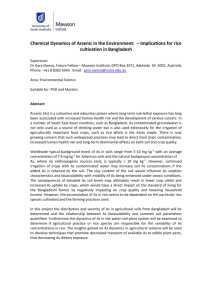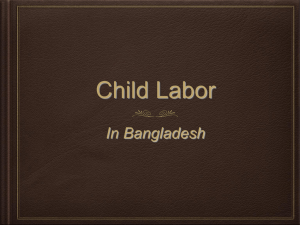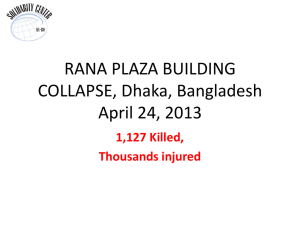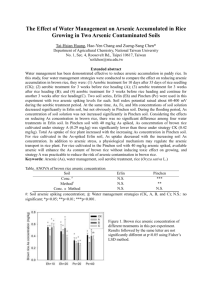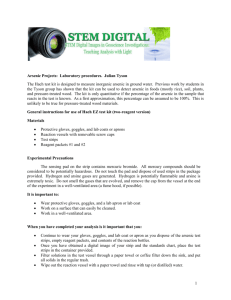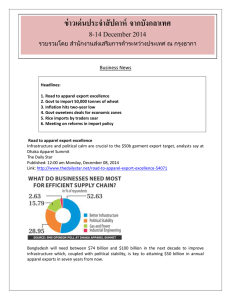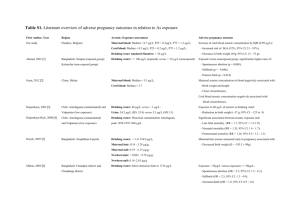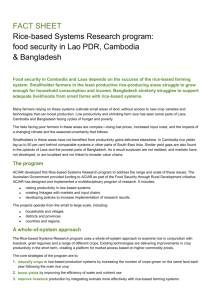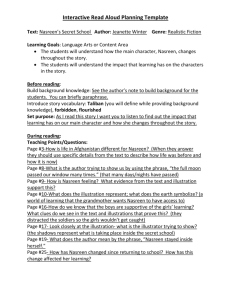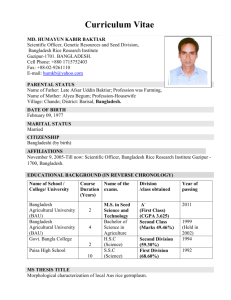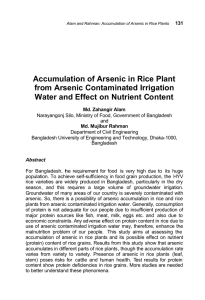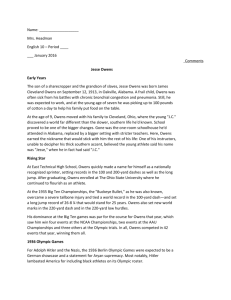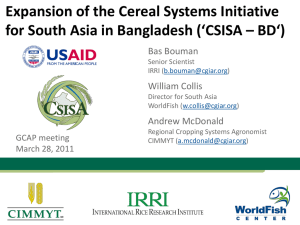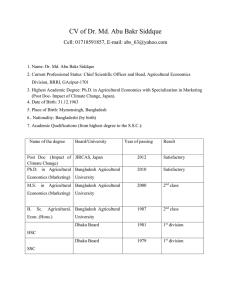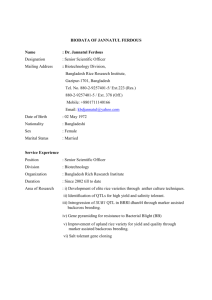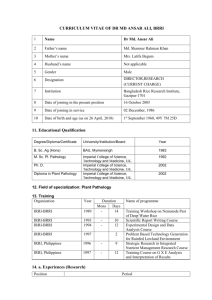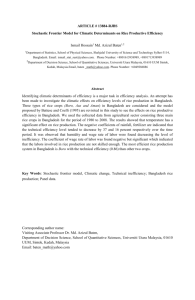Bangladesh - University of South Australia
advertisement
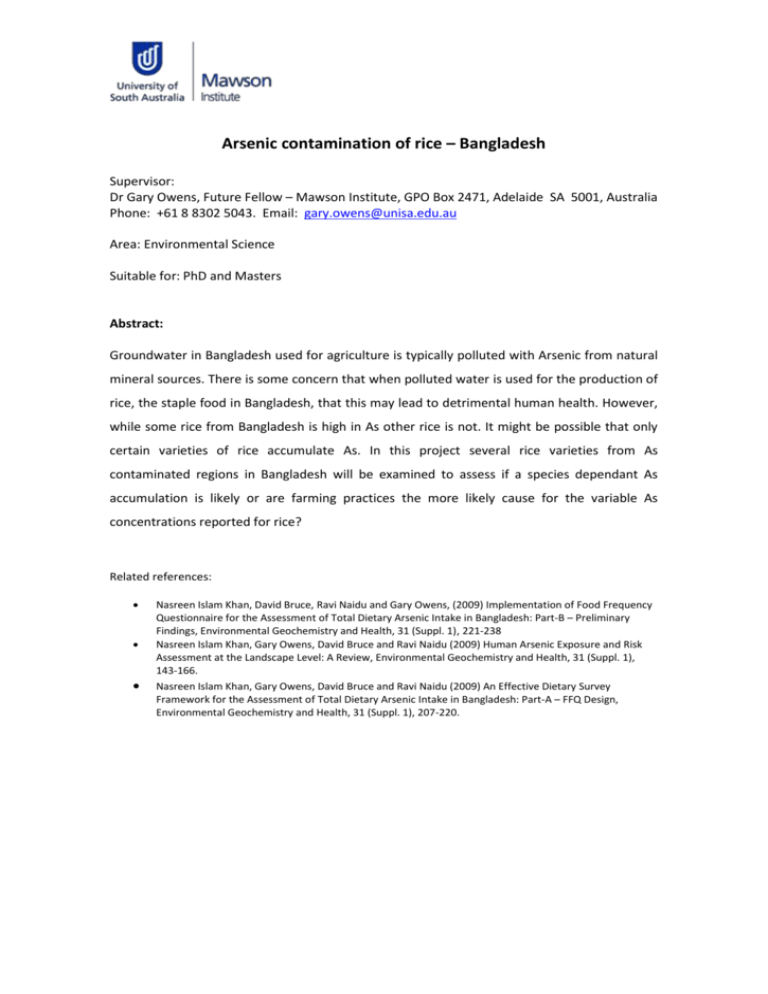
Arsenic contamination of rice – Bangladesh Supervisor: Dr Gary Owens, Future Fellow – Mawson Institute, GPO Box 2471, Adelaide SA 5001, Australia Phone: +61 8 8302 5043. Email: gary.owens@unisa.edu.au Area: Environmental Science Suitable for: PhD and Masters Abstract: Groundwater in Bangladesh used for agriculture is typically polluted with Arsenic from natural mineral sources. There is some concern that when polluted water is used for the production of rice, the staple food in Bangladesh, that this may lead to detrimental human health. However, while some rice from Bangladesh is high in As other rice is not. It might be possible that only certain varieties of rice accumulate As. In this project several rice varieties from As contaminated regions in Bangladesh will be examined to assess if a species dependant As accumulation is likely or are farming practices the more likely cause for the variable As concentrations reported for rice? Related references: Nasreen Islam Khan, David Bruce, Ravi Naidu and Gary Owens, (2009) Implementation of Food Frequency Questionnaire for the Assessment of Total Dietary Arsenic Intake in Bangladesh: Part-B – Preliminary Findings, Environmental Geochemistry and Health, 31 (Suppl. 1), 221-238 Nasreen Islam Khan, Gary Owens, David Bruce and Ravi Naidu (2009) Human Arsenic Exposure and Risk Assessment at the Landscape Level: A Review, Environmental Geochemistry and Health, 31 (Suppl. 1), 143-166. Nasreen Islam Khan, Gary Owens, David Bruce and Ravi Naidu (2009) An Effective Dietary Survey Framework for the Assessment of Total Dietary Arsenic Intake in Bangladesh: Part-A – FFQ Design, Environmental Geochemistry and Health, 31 (Suppl. 1), 207-220. About Adelaide: Adelaide is the capital of South Australia and offers a very high standard of living (top 6 in the world according to “The Economist”), with great climate, food, wine, beautiful unspoiled nature and beach environments, in an inexpensive setting. The Mawson Institute (MI) has recently been established at the University of South Australia, with strong support from the South Australian Government to research new manufacturing technologies. Manufacturing is an important and substantial part of South Australia’s economic base. The MI promotes a strategy based upon strong basic and applied research that encourages scientific and technological innovation within the manufacturing sector. Fundamental to this is the Institute’s multidisciplinary approach, building research teams in concentrations that encompass a diverse range of disciplines, and collaboration with partners from both academia and industry. The institute is based in two new state-of-the-art buildings with outstanding research facilities (see photo of the MM building). For more information on this project please contact the supervisor.
